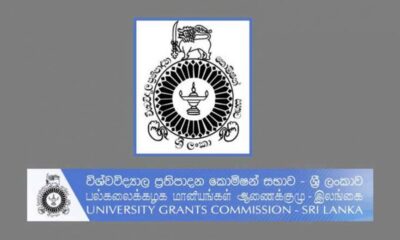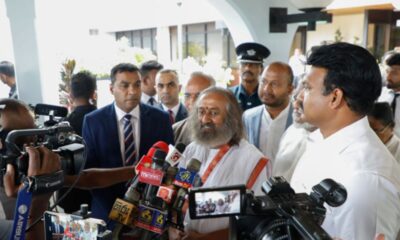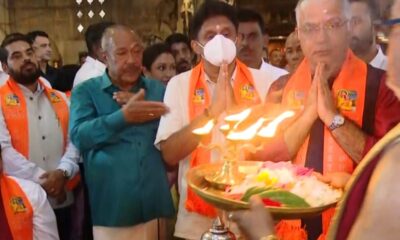Prima Ceylon (Private) Limited and Serendib Flour Mills (Pvt) Ltd, which funds the election campaign of some political parties, have set up a wheat flour monopoly in Sri Lanka and the people have to buy flour at steep prices so the companies can raise money for election campaigns, National People’s Power (NPP) Leader Anura Kumara Dissanayake said in Parliament yesterday (19).
He said the President’s Chief of Staff Sagala Ratnayake is the mediator of this process and that he should be questioned in this regard.
The MP said this while posing questions to the government under Standing Order 27/2 about the problematic situation faced by the bakery industry and the consumers due to the move to allow two companies to create a wheat flour monopoly.
“Today, about 6,000 bakeries operate all over the country providing a livelihood to about 500,000 people. Apart from rice, which is the main staple, wheat flour is the main ingredient of many types of food consumed by most of the people,”
“In spite of this situation, the government has banned the import of wheat flour without import licenses by the extraordinary gazette issued on 14.06.2023 and by the letter of 2023.06.16 of the Import Controller. So far no such licenses have been issued. Accordingly, two multinational companies–Prima and Serendib–have monopolized the industry.”
“However, comparing the price of wheat flour in the world market, it is revealed that these companies are making high profits in the sale of flour during the government’s wheat flour import ban. For example, when importing wheat flour from Türkiye to Sri Lanka, the price of one kilogram of flour at the port is only Rs.110 but these companies have decided the price at Rs.210.”
“The price of flour is decreasing rapidly in the world market and the value of the US dollar has depreciated from 362 to 301. What should happen now? This advantage should be given to the consumers but what did the government do? What the government did was to issue a gazette notice on June 14 and stop issuing wheat flour import licenses. Then Serendib and Prima will have a monopoly. It is well known that these companies fund election activities of political movements. When the price of flour in the world market is decreasing and the value of the dollar is also depreciating, who gave this bribe to Prima and Serendib? Sagala Ratnayaka should be questioned. This is what they did. How did he get the power of the Ministry of Finance to decide on taxes? How can he make decisions? How can he make an influence?”
“When the price of flour is decreasing in the world market, and the value of the dollar is depreciating, the benefit has not been given to the consumers. Instead, the companies raise funds for election campaigns and activities of various political movements. These are the people who pumped money in every presidential election. Everyone knows what they are trying to do. Wheat flour is being given to consumers at a high price so the companies can raise the funds for the upcoming presidential election,” he said.

 BIZ3 days ago
BIZ3 days ago
 News2 days ago
News2 days ago
 News2 days ago
News2 days ago
 News3 days ago
News3 days ago
 News2 days ago
News2 days ago
 News1 day ago
News1 day ago
 News2 days ago
News2 days ago
 News3 days ago
News3 days ago





















